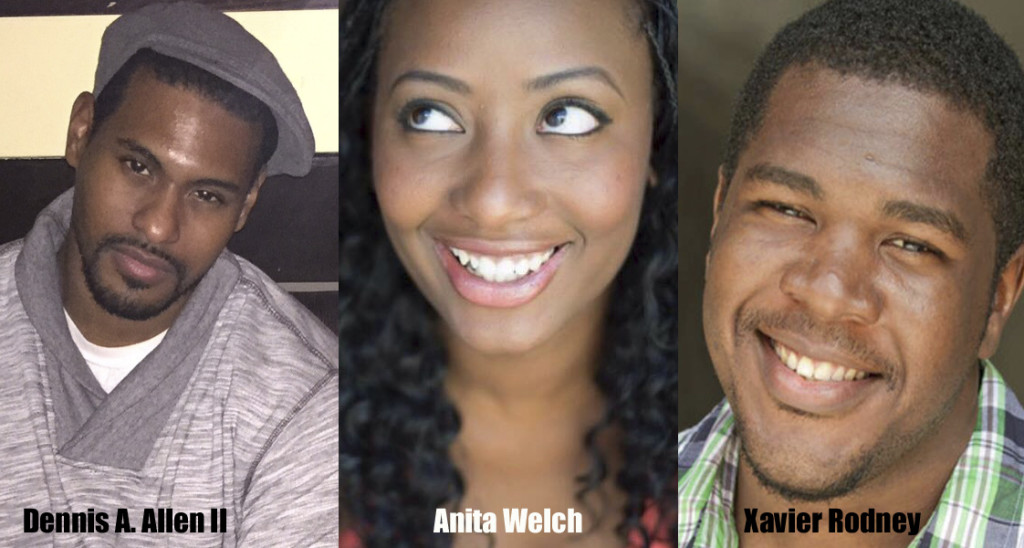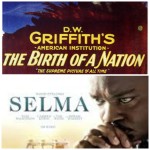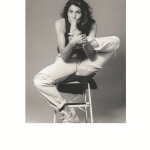This is the last week of February, which means the last week of Black History Month. This month saw the incredibly controversial, yet important film “Birth of A Nation” celebrate its century mark, reminding us that just 100 years ago, a film depicting African Americans as savages unable to cope with white society was a big hit. Since then, the African American community has battled the stereotypes to carve their place into the industry that neglected them at first. But as we can see by the Oscar ceremony this year, people of color still have a long way to go to be completely accepted.
I asked three New York artists to answer some questions (Some similar/Some different) that will shed some light on their daily hustle in the NYC entertainment industry. A brief interview to see where African-American artists stand today, in this new generation, and how they see what’s in store for their community.
The three artist to honor me with their time all come from different backgrounds. A filmmaking self-made man Xavier Rodney is one of the hardest workers I know out there. While constantly performing in plays around the city, he directs, produces, and helps other companies with his talents for free. Anita Welch is a musical thespian that can be seen on the big screen as much as she can be seen on stage. Humble and beautiful, she wakes up every morning to audition without skipping a beat. Our last (but not least) volunteer is the outspoken and passionate writer Dennis A. Allen II, a man that both acts and directs, but that focuses on his writing and uses words to inspire us every day.
Xavier, being a native New Yorker, what’s the main difference you see every day in your community now then when you were growing up? How has the industry changed in your view?
Xavier: The main difference is the city itself. It’s almost as if it was a living, breathing sentient being all its own, and the hustle and drive it takes to keep up with it is brutal. Rising prices, over population, possible scams around every corner is not only life here, but can reflect the entertainment industry, too, if you’re not careful.
Dennis, you are a writer/ director/actor in NYC — in which part of your multi-talented career do you feel like there’s a bigger audience? Smaller?
Dennis: Do you mean my personal audience or in general? If you’re saying my personal audience, then the bigger audience is through being a writer because that’s what I’ve been actively cultivating for the past 4 years. If it wasn’t for Tyson vs. Ali last year I don’t think anyone would remember I act as well, and I have just recently officially entered the directing arena by directing Aziza Barnes’ ten minute play in The Fire This Time Festival. Now if you’re saying generally, then I’d say there’s a bigger audience for actors and then funny enough, the smaller would be writing. Very few writers are household names and even fewer playwrights are household names.
Anita, being originally from California, what would you say is the main difference you would say between being a black female actor in California and being one in NY?
Anita: I’ve found that the standard of beauty is a bit narrower in California than NYC. While in both places I am always very aware of my size, the way I dress, and how that makes casting directors, agents, and managers see me, but in LA I found that my natural short kinky fro paired with my dark skin put me up for the quirky best friend, slightly off, sassy, or “ghetto” roles. It was harder to be viewed as beautiful/sexy. Where as in NYC I hear more praises for my natural look and curves. It has been the most frustrating thing, because I don’t identify myself by my hair and like to change it up often without fear of it keeping me out of the casting office.
Anita, as a former student of AMDA New York, you have done your share of musicals. How do you feel that genre caters to the African American community? Do you think black women are well represented?
Anita: I think the flaw is that people need to reimagine the box. Yes, to answer your question, there are less “black musicals,” but some of those roles are exciting and exhilarating! For example Bess! But why not cast regardless of race? Who’s to say you can’t be a black Fanny Brice, Mary Poppins, a black Reno Sweeney. We all share the responsibility to redefine the box.
Yes we do. Xavier back to you: You are constantly performing in shows while developing and directing others. Do you feel like you have to work harder because of your race? Have you felt held back? At an advantage?
Xavier: There was a time that I strongly believed that there was a strong thread between race and casting/work. It may not have been true, but you would feel that way. In general, people like to work with the people they know and trust. In turn, you would only see one type of or just the same people dominating the scene. Thankfully that is no longer the case, as many works and productions are being independently produced and changing the views of the masses. No more are the days of only the ‘model Hollywood model’ and its expectations. The entertainment industry has started to accept all walks of life and the public has challenged their creativity to foster and grow because of it.
Agreed. Dennis, you are very outspoken about the injustice you see everyday, from society to culture. How do you think art can be used as a weapon against the underlying racism this nation still has and tries to hide? How can we educate?
Dennis: A couple of years ago I watched an interview Bill Moyers did with Junot Diaz and something Diaz said regarding art and artists stuck with me. He said, “I find in the culture silences, places people don’t want to talk, and I build in them. I work in them. Because that’s what an artist does… the artist has conversations that folks don’t want to have.” So when thinking about art being used as a “weapon” against racism and really all the isms and ills that plague our communities, I think of art’s ability to expose, explore and examine our cultural silences. The first thing a molester tells his or her victim is to remain quite, to tell no one, because as long as the victim is silent, the molester maintains power. And the victim stays silent usually because of shame. White Supremacy, hetero-patriarchy, and capitalism maintain power in our society because many of us are ashamed of being the oppressed and of being the oppressors; and so we remain silent.
In regards to how we educate, I think that compassion and patience are key. I have experienced and I am guilty of the belief that, if I learned or know something then “You” should learn and know the same way I did. But learning is so much more complicated, especially when the lesson resides in changing centuries of conditioning and altering world views.
Malcolm X once said: “Don’t be in a hurry to condemn because he doesn’t do what you do or think as you think or as fast. There was a time when you didn’t know what you know today.”
In educating about our culture of silence we have to have compassion and patience, and I think the patience is hard for people because the stakes are high for those of us that feel and experience the “isms” daily. Patience is difficult to practice because the need for change is immediate. It’s imperative to always remember that people have multiple learning styles (Visual, aural, verbal, physical, logical, social and solitary) and the beautiful thing about art is that it has the ability to address all of those learning styles.
Anita, how about you? After the snub of Ava DuVernay in the Oscars for the spectacular film “Selma,” there was a huge backlash about women not being respected in the industry. Especially African American women. Besides backstage politics and the fact that the film itself did not garner enough buzz in time before the votes went out, history has shown black women have barely won or been recognized in this industry as leaders. Hell, 13% of women in the USA are black, but only 2% of female characters on TV are. How does that affect you as an actor? What’s your view of the industry in general? Do you agree or not that race was taken into account?
Anita: Hmm, I actually recently read a few articles where Ava DuVernay was asked similar questions. Her response quoted in the Huffington post I believe was perfect and I agree. She said “[T]he question is: Why was Selma the only film that was even in the running with people of color for the award? You know what I mean? I mean, why are there not — not just black, brown people? You know what I mean? Asian people, indigenous people, representations that are more than just one voice, just one face, just one gaze? So, for me, it’s much less about the awards and the accolades, because, literally, next year no one cares. Right? I can’t even tell you who won the award for whatever three years ago. I don’t know.”
Brilliant! Xavier, Working in both theater and film, which industry seems more diverse? Any experiences you would like to share?
Xavier: Hmmm… that’s a tough one, because it’s scaled. I would have to say film is more diverse because it is a larger entity. I’m not saying theater isn’t for the lack of trying or capability; there are hundreds of niche plays in the city alone; it just may be harder to come by due to the nature of play development time and/or festivals. In film however, seemingly anyone nowadays, can pick up and camera and start a worldwide journey of discovery, getting new faces out there every hour.
How about you Anita, what is a struggle you deal with every day being black and female? What’s an advantage?
Anita: In terms of being a actress I find it can be hard to have others view you as more than just the color of your skin and allow you to audition for and play certain roles that weren’t written with you in mind. But an advantage of this is that I get to be apart of a beautiful, strong, and supportive community of fellow actors of color.
Tell me about this community. Media often portrays the African American community as one that is unruly and can’t unite. A divided race between those that want to move it forward, and those that are spotlighted in the news, i.e the criminal world, the underprivileged, the ghetto. Even in recent times as it was with the case of Eric Garner and Mike Brown, the news often showed the peaceful protestors for a moment after talking at length about the looters and the people starting riots. This focus has created an idea of a race that doesn’t do well together. How far from the truth is this?
Anita: This question boggles me on different levels as a woman, an African American, and as an artist. We as a community have had to bond together to overcome many issues. Had to find strength and make a way out of no way, and I personally believe African American people take care of each other like none other. The media projects and shows things that sell. “The squeaky wheel gets the grease.” It’s unfortunate that the light seems to shine brightest on those who shout the loudest. But I refuse to accept this idea of us not doing well together. History has proven that isn’t the whole truth
Dennis, you were in the innovative show Tyson vs. Ali last year. Portraying such huge figures from the black community must have required extensive research. How did it feel filling those shoes? What’s the main difference you see from their time to ours?
Dennis: Both men are cultural icons so for me to say it was a daunting task would be really an understatement. Boxing is an art form and Ali and Tyson dedicated their lives to perfecting their art and then using that art as a platform to better themselves and their communities. (Tyson more so now that he’s sober and emotionally more mature.) As daunting as the task was, it felt amazing to attempt to walk in their shoes. I’m really proud of the work we all did; the entire Tyson vs. Ali team did rigorous research and dedicated countless hours to honoring these living legends, I wish more people were able to experience the show. It’s difficult for me to answer the time question because I’m practicing, experiencing and talking about time differently than we’ve been conditioned to do. I look more at the journey of humans as a continuous one as opposed to segregating eras. Plus, both Tyson and Ali are still alive so for me to create this binary of “ours” and “theirs” doesn’t feel right to me. Now is just as much their time as “then,” it’s just a different point in their journeys. I would say the main difference is technology and the speed at which news and information travels globally. Oh and fashion. Yeah, technology and fashion- that’s it.
For the three of you, do you feel we are moving forward as a society? What do you think the industry needs?
Anita: Yes, but we still have a long way to go. I think the industry needs more writers of different ethnicities who write characters that are not just the stereotype or one-dimensional.
Dennis: I absolutely believe we are moving forward as a society and I think that social media, though it has many negatives, has become a main vehicle for social change. If we just look at Twitter and specifically, the ability to live tweet information in real time and share with the world. I do not think the killing of Mike Brown and then the protests in Ferguson would have had the impact that it had globally without social media, because for the first time we can tell and transmit our own stories. We don’t have to rely on the AP and its filter to hear and see what’s happening. News and hence, history, is now being told by the people and that may not seem like a big deal now but it will be huge for future generations. Talk about a loaded question… what does the industry need? I think the industry needs to examine and debunk the lie that White Supremacy has fed it, which is that only white stories and white people in stories are the way to sustain theatre.
Xavier: We are definitely moving forward as a society, however not always in the right way. The industry has a tendency to get stale, bogged down by the same formulaic ideas for capitalistic production. Yea. I said it. It has the potential to grow to limitless heights and it just needs strong, creative minded people to be constantly rotated into the mix. Fresh faces not only behind the scene, but in front of it, too. Everyone can learn something from observing the ‘new.’ There are so many hungry individuals out there striving to break molds.
Now let’s have some fun here. For the three of you, and not taking race into account, what would be your absolute dream role?
Xavier: Haha! I’m not that vain to have a specific dream role, just one where I can entertain and produce smiles on the faces of the people. That or Batman. People want to be Batman, right?
Anita: This is exciting! Lets see! Hmm… this is hard. I actually used to know, haha. But now I don’t. I don’t like to put a box on God because I find his plan is so much better than mine. SO I say my dream role is one that is written for me and allows me to be open and vulnerable. Something that really showcases me well. Does this count?
Dennis: I think this question exposes me regarding whether or not I’m an actor because I have no answer. There are writers that I’d love to write a role for me like, Dominique Morisseau or J. Julian Christopher or directors I’d love to explore a role with, like Christopher Burris or Jenny Koons.
On a side but related note, if I had a dream role, it would be one that was written specifically for a Black American. I’m not interested in exploring a complex character that’s white. That’s been done and duplicated many times. The majority of complex characters being produced are one’s that are white. White is considered the norm, considered to be “universal.” It’s problematic for me that for Black and Brown actors to be able to been seen on stage as complex, as fully realized characters, they can mostly only do so by exploring a role written for a white character. The false narrative that only white characters are complete and valuable human beings is one that is presented on stage and in everyday life, so for me it’s a matter of survival and my responsibility to create and pursue roles that are undeniably Black. Some would believe that’s limiting, but Black stories are just as infinite as any story of humanity.
Thank you all for your time. To finish this interview: What would you tell the kids that dream of one day making it in this industry, the young black people rising or in a classroom dreaming that one day they could be there, even though the statistics tell them many of them will not. What would you say to them?
Xavier: Learn, learn, learn. When you’ve finally finished that, learn some more. It’s never over. Having multiple skills will not only break you out of the “street statistics,” but it will enrich your mind and give you the edge you need in this bustling field. Get together with like-minded individuals to give each other strength. Put your skills into practice and make content. Culture your voice, read about new ideas, write and play. It’s a beautiful world out there, just waiting for you to explore.
Dennis: Honesty, fear and love. Be honest about what you want no matter what outside forces say. Tap into what you’re afraid of and relentlessly pursue that fear until it no longer exists. Always practice love. Love yourself, love your craft and surround yourself with those that love you unconditionally.
Anita: YOU CAN DO ANYTHING! Just don’t give up, do what makes you happy for as long as it makes you happy.
Thank you to all three of these brave souls. Check their work! Read the information below:
Xavier Rodney is currently working for the American Candy sketch comedy group. His webseries “Going Nowhere” can be seen on Youtube, and you can follow his adventures on http://www.xavierrodney.com. Soon to be in the play “The Long Rail North” opening in the late Spring.
Anita Welch has traveled the world performing in numerous musical and plays, recently finished filming her second feature film and a web series for Clinique. Learn more about Anita by checking out www.anitawelch.com.
Dennis A. Allen II is an award-winning writer whose work can be seen next as part The New Black Fest at the Lark where his play “America’s Favorite Pastime” will have a reading on March 20th. Then on March 22nd, The Working Theater’s Directors Salon 2015 will feature a new Ten-minute play he wrote for this year’s prompt “to serve and protect.” You don’t want to miss what he does: http://www.dennisaallenii.com/.
Twisted Talk: What are your thoughts about these interviews? What did you do to honor Black History Month? Discuss below!









